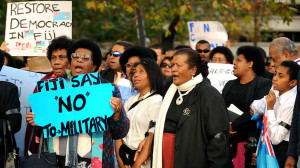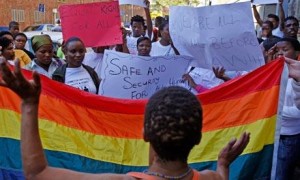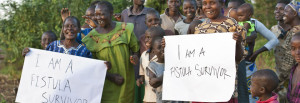by Max Bartels
Impunity Watch Reporter, Oceania
Suva, Fiji
Fiji is preparing for its first democratic election since the military coup in 2006. Since the coup the Fijian media has been subjected to restrictions by the military government seeking to control the flow of information to its citizens, the government has ramped up these restrictions as the September elections approach. The Fijian government has added new regulations monitoring the level of bias in political reporting. The regulations cover both local Fijian reporters as well as foreign reporters working in Fiji and covering Fijian politics. Violation of the regulations results in fines and can be punishable by up to five years in jail. So far a number of foreign reporters have been banned from Fiji after writing articles or conducting interviews that the government believed to reflect bias that they did not want the public exposed to. One of these reporters was New Zealander Michael Field who made comments about the state of the Fijian media being farcical and that it does not represent a fair and free democracy.

(Photo Curtesy of SBS News Australia)
Amnesty International has stressed that in regards to the Fiji election freedom of expression is crucial for the media to achieve governmental transparency. The government has passed legislation aimed at restricting the freedom of journalists writing on the election and other issues within the government. Many journalists have been intimidated by the government, slapped with heavy fines and jail time. Amnesty International also reported there has been a number of arbitrary detentions of number of local journalists. In order for elections to be free and fair there must be an unrestricted media with the ability to criticize the government and the candidates without fear of retribution by the authorities.
When the media decree was first enacted after the coup it stated that media reports must not include material, which goes against public interest or order. These decrees put the media under the effective control of the military government. When the laws were first enacted there was an opportunity for public consultation, however those members of the public who had the opportunity to consult were only given two and a half hours to read the law and prepare for the consultation. There was not a proper opportunity for an opposition to the decree. This sort of policy has continued even during the transfer to democracy and these sorts of laws are in opposition to the democratic changes the country is trying to make and hopefully not a reflection of the rest of the election process.
For more information, please see:
ABC Australia Network News — Fiji to Set up Media Monitor Ahead of Election — 27 March 2014
Fiji Times — Media restrictions — 29 April 2014
Amnesty International — Fiji: End Harassment of Journalist Ahead of Election — 27 June 2014
ABC News Australia — Fiji Media Decree ‘Extremely Worrying’ — 7 April 2010
SBS News Australia — In Fiji, Free Press Remains Elusive — 11 July 2014



